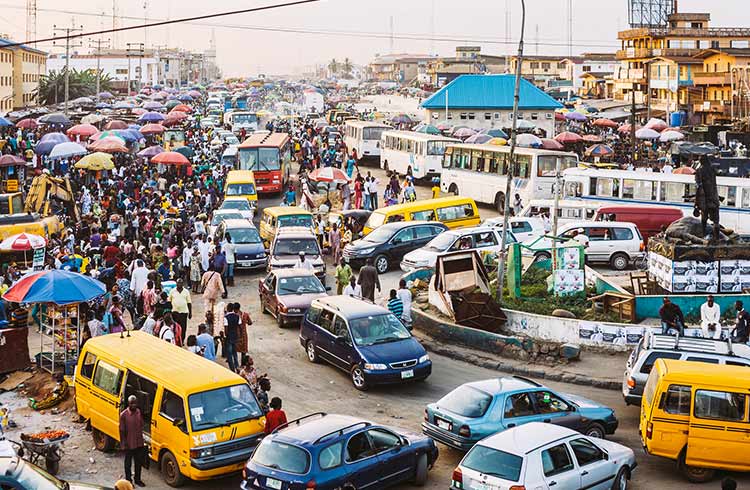Transport Trouble in Nigeria: What is the Safest Option?
Traveling around Nigeria is incredibly difficult, from epic traffic jams to poor transport, this is what travelers need to know.
 Photo © Getty Images/peeterv
Photo © Getty Images/peeterv
Getting around in Nigeria can be really difficult, because of bad infrastructure and criminal elements.
Traffic jams in Nigeria
Travelers should know first and foremost that Nigeria has a lot of traffic. Epic traffic jams can turn a five-minute trip into a two-hour one. Naturally, these jams are worst in the major cities, especially Lagos. If you are supposed to show up somewhere on time, give yourself a few extra hours' leeway.
If you are the driver, and this is a big "if," as you can't use an international driving permit and it can take months to get a Nigerian driver's license, and actually get to go faster than a snail's pace, you will find less than satisfactory roadways, which can easily damage cars and make driving truly hazardous.
Traffic lights, if they exist, do not normally work well, and stop signs are not taken seriously here.
The rainy season from May to October can flood roads and fill up potholes.
Make sure to fill up your gas tank before heading out on Nigerian roads, as fuel shortages are frequent and lead to very long lines at fuel stations.
If you do drive yourself, take a mobile phone just in case and bottled water to deal with traffic in the hot sun.
Also, be aware that roads in Abuja and Lagos shut for a few hours on the last Saturday of the month for road cleanup.
Transport options
Unfortunately, your public transport options in Nigeria are not much to write home about. Buses are largely deemed unsafe because of poor maintenance, out of control driving and packed-in passengers.
Motorbike taxis called "okadas" are a common method of transport, but they, too, are risky because of the driver's erratic maneuvering and complete disregard of traffic laws.
These bikes are actually banned in Abuja and Lagos after 10 p.m. Local taxis are not much better, as travelers have reported being taken to desolate areas where they've been robbed and assaulted.
Hiring a private driver
You do have the option of hiring a car with a driver on your travels around Nigeria. Major hotels will supply this service to take you around and also pick you up and drop you off at the airport. Make sure the driver has documents to prove his identity so you do not get duped by criminals posing as greeters.
Security checkpoints
Crime can occur on roadways throughout Nigeria, including at security checkpoints, where some officials will try to solicit bribes. Some traffic officers may also cite drivers for fake violations. Robberies and carjacking with armed attackers can happen on all roadways. Remember to try to give over your valuables quickly to the robber or bandit to avoid injury.
Lagos airport
The Murtala Muhammed International Airport near Lagos was once considered one of the world's worst airports. baggage carousels didn't work, there was no air conditioning, passengers were robbed while still on their plane, and criminal activity was rife.
Conditions have improved significantly throughout the 2000's, thanks in part to a "shoot on sight" policy by police which stopped criminals entering secure airside areas.
However, it still remains a place where you should be on your guard.
Simple and flexible travel insurance
You can buy at home or while traveling, and claim online from anywhere in the world. With 150+ adventure activities covered and 24/7 emergency assistance.
Get a quote
No Comments